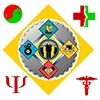
Trauma Recovery
Healing from Workplace Trauma: A Guide to Recovery
Introduction:
The workplace is an integral part of our lives, and for so many individuals, it serves as a source of purpose, social interaction, and personal growth. However, sometimes the workplace can become a setting where trauma occurs, leading to long-lasting negative effects on an individual’s well-being and overall mental health. Not only that, workplace trauma can become a long term infection that can permanently damage a workplace culture and negatively impact that organization for years to come.
Workplace trauma can take various forms, including physical, emotional, or psychological abuse, harassment, discrimination, or witnessing traumatic events. In this article, we will explore the steps and strategies for recovering from workplace trauma, helping individuals reclaim their sense of safety, confidence, and professional fulfillment.
- Acknowledge the Trauma:
The first step towards recovery from workplace trauma is acknowledging its existence and recognizing its impact on your life. It is essential to validate your experiences and understand that what you went through was not your fault. Allow yourself to feel the emotions associated with the trauma and give yourself permission to heal. - Seek Support:
Recovering from workplace trauma often requires support from others. Reach out to trusted friends, family members, or colleagues who can provide a safe space for you to share your experiences. Consider seeking professional help from therapists or counselors experienced in trauma recovery. They can guide you through the healing process and equip you with coping mechanisms to overcome the emotional challenges. - Establish Boundaries:
Setting clear boundaries is crucial to ensure your well-being and prevent further trauma. Communicate your boundaries assertively and effectively to your colleagues, supervisors, or managers. If necessary, consider implementing legal measures or involving human resources to address the issue and prevent future incidents. - Practice Self-Care:
Engage in self-care activities that promote physical, emotional, and mental well-being. Prioritize activities that help you relax, rejuvenate, and regain a sense of control over your life. These can include regular exercise, healthy eating habits, sufficient sleep, mindfulness and meditation practices, creative outlets, and spending time with loved ones. - Explore Therapeutic Techniques:
Several therapeutic techniques can aid in the recovery from workplace trauma. Cognitive-Behavioral Therapy (CBT) can help challenge and reframe negative thoughts and beliefs associated with the trauma. Eye Movement Desensitization and Reprocessing (EMDR) is another effective therapy that targets traumatic memories and facilitates their processing. Other approaches like art therapy, group therapy, or body-based therapies such as yoga or somatic experiencing can also be beneficial. - Cultivate Resilience:
Building resilience is a vital aspect of trauma recovery. Cultivate resilience by nurturing positive coping mechanisms, focusing on personal growth, and enhancing self-esteem. Engage in activities that promote self-reflection, self-compassion, and personal development. This may involve setting achievable goals, learning new skills, and participating in support groups or workshops related to trauma recovery. - Advocacy and Awareness:
Consider becoming an advocate for workplace trauma awareness and prevention. Share your experiences with trusted individuals, participate in relevant forums, or join support groups to raise awareness about workplace trauma. By speaking out, and leveraging your “lived expereince” you can help empower others who have faced similar challenges and contribute to positive changes in workplace culture.
Conclusion:
Recovering from workplace trauma is a complex and individualized process that requires time, support, and self-care. By acknowledging the trauma, seeking support, establishing boundaries, practicing self-care, exploring therapeutic techniques, cultivating resilience, exploring career options, and becoming an advocate, individuals can gradually regain control over their lives and find renewed purpose and fulfillment in their professional journeys. Remember, healing is possible, and by taking these steps, you are taking an important stride towards reclaiming your well-being and building a brighter future.
In the interests of supporting people and organizations optimally recover from workplace trauma Transformational Safety has developed a simple pamphlet (When Bad Things Happen) that can be used as part of pre-exposure preparation/education or provided at the point of exposure to a traumatic incident.
Better still, reach out to David G Broadbent to come and assist you develop a people focussed trauma recovery program. David has developed one of the worlds foremost psycho-education programs based on Bessel Van Der Kolk’s international best seller – The Body Keeps the Score. This is one of the most powerful interventions that you can implement that shows applied caring for your people. Click here to view the Flyer for this highly important Workshop.
If you would like to view Bessel Van Der Kolk talking about Trauma then just click here.
If you would like to read a little bit more about David g Broadbent’s own personal exposure to trauma (being hit by a car whilst cycling – they stopped counting the fractures at twenty-four) then just click here.

Ricky, Atlanta
![]()
“I was fortunate to attend Transformational Safety’s Anatomies of Disaster Program. This was amongst the most powerful two days I have ever spent in a room. From the outset David Broadbent set the scene by dedicating the program to the late Rick Rescorla – the man who is credited with saving over 2700 lives on 9/11. Throughout the two days David would often respectively reflect and remember those who had died, or been injured, in the disasters we explored. He would say, and I will never forget, “…we must always remember those that lost their lives lift us up into the light of understanding”. I learnt so much. HRO, Resilience Engineering, Critical Incident Stress Management (CISM) and more. Those of us who were there are still talking about it…… Thankyou David


